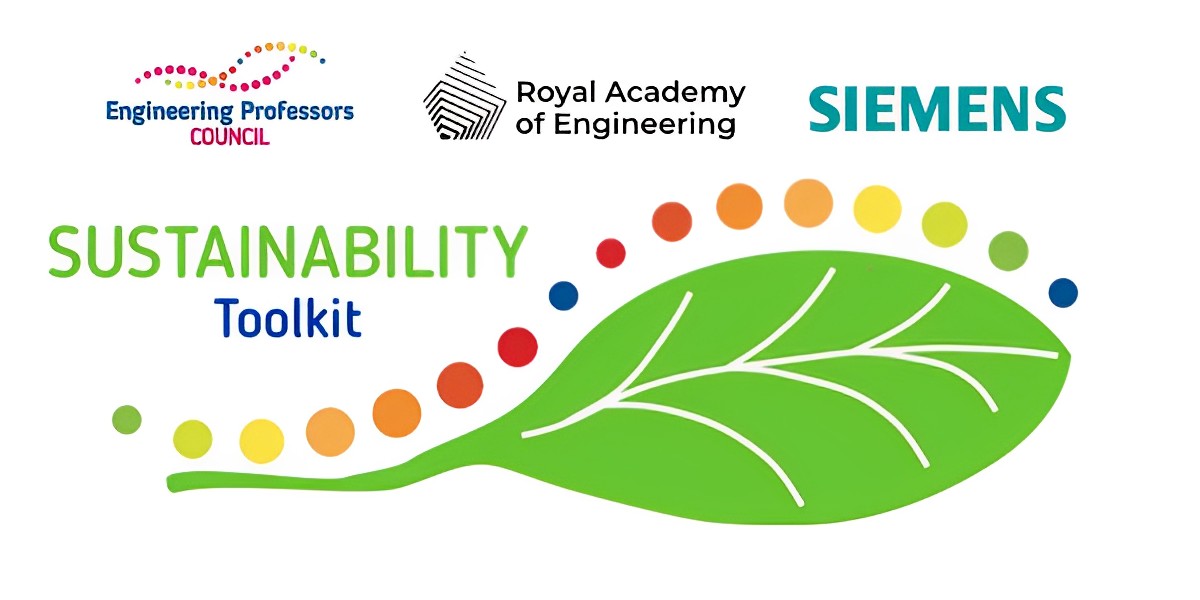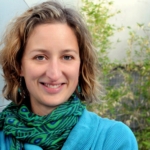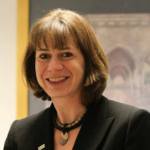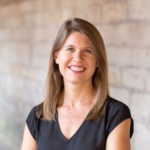
Work on the Sustainability Toolkit is well underway and we are making progress with guidance from our Sustainability Toolkit Steering Group. The steering group is composed of academic, industry, and advocacy leaders who are passionate about sustainability and it will help guide the development of outputs such as those created for the EPC’s Engineering Ethics Toolkit.
It will work alongside our project partners, including the Royal Academy of Engineering, Siemens, and the Lemelson Foundation which has supported work on a similar initiative in the US. The project will run from February through December 2023.
The Group is chaired by Chris Wise and the project is managed by Prof. Sarah Jayne Hitt with project support from Crystal Nwagboso and Johnny Rich of the Engineering Professors’ Council, Siemens, and the Royal Academy of Engineering. A full list of Sustainability Toolkit Steering Group members can be found below.
Cindy has taught thousands of people through courses and workshops, around the world and online, in the fields of biology, sustainability and biomimicry. She is honored to be a collaborative partner on the Engineering for One Planet (EOP) initiative since its inception and serves as a Strategy Consultant for EOP. She is co-author of the EOP Framework and new framework companion teaching guides, and active EOP Network Member. Cindy holds a MS from Oregon State University, a MEd from Griffith University (Queensland, Australia), and a BSc in biology from the University of Guelph (Ontario, Canada). She is also Royal Academy of Engineering Visiting Professor at Aston University teaching professional skills, ethics, sustainability, global responsibility, inclusive outcomes, and ESG to MSc and Degree apprenticeship students. She is a Fellow of the Royal Academy of Engineering and sits on the Education and Skills Committee, as well as the Africa Engineers Steering Group, and is UK representative of the World Federation of Engineering Organisations, and incoming President of the Commonwealth Engineers’ Council. She is also a Fellow of IOM3 where she sits on the Sustainable Development Group. Kirsty Connell-Skinner Based at Edinburgh Napier University, she combines over a decade of experience in philanthropic fundraising with innovative management techniques gained from her MBA to drive forward public and private investment in the next generation of engineering, computing and business professionals, with a particular focus on timber construction as Editor of Timber Development UK’s Knowledge Library. Passionate about empowering change and delivering equality as a feminist and activist, Kirsty is Treasurer of the Scottish Women’s Budget Group and former Chair of the Scottish Fundraising Standards Panel, the self-regulatory body for charity fundraising in Scotland. Emma Crichton CEng MICE Dr Panos Doss CEng SFHEA MIMechE He is the Director of Sustainable Engineering (MSc) at Aston University, and a member of the Sustainable Development in Teaching working group at Aston University where co-Leads the Education for Sustainable Development and Engineering Ethics research sub-group. In partnership with Engineers without Borders UK since 2018, Panos has been successfully embedding sustainability within engineering programmes, where students participate in Global Engineering Design Challenges. He leads the Efficiency for Access Engineering Design Challenge, and the delivery of modules including Sustainability in Engineering Practice, Life Cycle Analysis & Circular Economy, and Pathways to Net Zero. Bringing his knowledge and expertise, Panos aims to help shape and develop globally-minded future generations of engineers that are agents of change for sustainable development. Dr Alicia Gonzalez-Buelga Professor Tim Ibell FREng FIStructE FICE FHEA She has served as project manager for the EPC’s Ethics and Sustainability Toolkit initiatives, is Transferable Skills Lead for the Centre for Advanced Timber Technology at NMITE and is Visiting Professor in the School of Computing, Engineering, and the Built Environment at Edinburgh Napier University. She has led national and international workshops on interdisciplinary learning and teaching and worked with academic and industry partners on various engineering education initiatives. She has recent publications in the International Journal of Engineering Education and The Journal of Problem-Based Learning in Higher Education. Dr Irina Lazar She also leads a programme on Science and Engineering for Social Change, combining technical training with social scientific and policy skills. Irina hold degrees in Civil and Mechanical Engineering and is passionate about engineering and education alike, with her research interests spanning across inclusive engineering education, programme design and blended teaching and learning. Irina believes sustainability should be at the core of engineering education and deeply embedded into programmes and is working on developing an online platform to enable collaboration in this area. Millie May Crystal Nwagboso In conjunction with this, Crystal also formulates, proofreads, and revises material for the website and has created a user manual outlining the technical intricacies of the website. Crystal is also working on the development of the EPC’s Siemens and RAEng-funded Sustainability Toolkit project, which she has been involved in since the beginning phases. She has been in charge of conducting research, analysing data, providing project management and executive support and is an active member of the Sustainability Toolkit Steering Group. Additionally, Crystal assists the executive team with a plethora of tasks including planning and coordinating events, scheduling and setting up Zoom webinars and meetings, liaising with over 8,000 EPC members in the database; ensuring all members are informed of the latest developments at the EPC and initiating discussions, conducting research analysis for upcoming projects, updating the EPC’s database and social media channels, social media marketing, assisting with the relaunch of the EPC’s newsletter, minute taking, composing press releases and more. Crystal graduated from Kings College London and has a degree in English Language and Linguistics that has equipped her with the tools and expertise needed for this role. Gabrielle Orbaek-White PhD Goudarz Poursharif CEng SFHEA He is the Chair of Institute of Environmental Management and Assessment’s Birmingham Steering Group and the Chair of Sustainable Development in Teaching working group at Aston University. His two main passions are education and engineering for a sustainable development, so since 2012, Goudarz has combined his two main passions by embedding Education for Sustainable Development (ESD) in the Engineering curricula of both University of Sheffield and Aston University as well as working directly with industry to upskill their sustainability skills. He has funded the Engineering for People Design Challenge at Aston University and co-led the development and implementation of MSc Sustainable Engineering Aston University. Before joining the EPC, Johnny has already worked on many issues of concern to our members. Over the past 25 years, he led Push’s research – such as on drop-out rates and student debt – which has had direct impacts on policy. Johnny’s thought leadership, such as his papers for a graduate levy and a national access fund (2018) and on employability (2015) for the Higher Education Policy Institute, have been influential throughout the sector. Policy issues are also a significant part of his consultancy work, along with communications. His clients have included the European Commission, HEFCE, U-Multirank, as well as many universities, recruiters and charities. He’s a regular speaker at conferences, awards and in schools. In 2013, his novel A Human Script was published. Dr Scott Strachan BEng (Hons.), PhD He has been active in the universal energy access research (SDG7) since 2006. He was a founder of the Electronic and Electrical Engineering (EEE) Department’s staff/student outreach Gambia Solar Project and Tamil Nadu Solar Project; designing and installing off-grid solar PV systems to rural schools and health clinics. He is Co-Director of the Vertically Integrated Project for Sustainable Development programme (winner of the 2019 International Green Gown Award for Student Engagement and 2020 AASHE Award for Campus Sustainability Research). He is also Education for Sustainable Development lead in the University’s Centre for Sustainable Development and Co-Convenor of the ESD Topic Support Network for Learning for Sustainability Scotland, a UN Regional Centre of Expertise. Scott also Chairs the University’s ESD Working Group and Strathclyde Climate Ambassadors’ Networks (SCAN), which won the 2022 UK & Ireland Green Gown Award for Student Engagement with Climate Education workshops. Emanuela Tilley PFHEA The Integrated Engineering Programme is an award winning teaching framework embedded in the learning experiences of undergraduate students across UCL Engineering to better prepare them for tackling future global challenges. Professor Tilley has established an international profile in the areas of leading curriculum design and development as well as cultural change required to support and foster innovation in engineering education within higher education. She is a Board Director for SEFI (European Society of Engineering Education) and Director of Education at the UCL Centre for Engineering Education (CEE). Erica Trump In previous roles Colin has been a Head of School for Engineering at Ulster for 8 years, and the institional lead for Learning and Teaching for the first 15 months of the COVID-19 pandemic. He is a previous Past President of the (EPC) Engineering Professors’ Council. He is Chartered Engineer and a Chartered Mathematician with significant software development and architecture experience. Colin is a Principal Fellow of the HEA (Higher Education Academy), a National Teaching Fellow, a Fellow of the (IET) Insitition of Engineering and Technology, and a Fellow of the (IMA) Institute of Mathematics and its Applications. At the Royal Academy of Engineering, she’s working with multiple teams and wider stakeholders to re-define engineering skills for the 21st century, part of which includes a project to transform how we educate and train our undergraduate engineers across UK universities so that they graduate well equipped to design, build and manufacture a net positive world. With over 30 years’ experience of driving policy change, strategy, business development and programme delivery for science and engineering organisations, she’s motivated by innovation and transformation – and above all by driving impact for societal benefit. She’s led projects to develop a new vision for science and maths education for the Royal Society, undertaken research and programme development to stimulate public engagement by UK researchers, promoted engineering for global construction company, Balfour Beatty, and as part of a senior team at the Engineering Council, transformed the engineering profession and its structures in 2002, creating sister organisation, Engineering UK. She is also vice-chair of the governing board of a 4-primary school network in London and a trustee of the charitable foundation, the IBMUK Trust. Dr Natasha Watson Professor Dilys Williams FRSA Trained at Manchester Metropolitan University and holding a UAL professorship in Fashion Design for Sustainability, Dilys publishes widely on fashion and sustainability in peer reviewed academic journals and published books. Dilys’ work draws on extensive experience in lead womenswear designer roles for international collections, including at Katharine Hamnett, Liberty and Whistles. This industry experience is complimented by a longstanding internationally recognised teaching and research portfolio focused on the development of sustainability centred design practices, based on principles of holism, participation and transformation design. Dilys is a member of the UNFCCC Global Climate Action in Fashion and sits on advisory committees for Positive Luxury and the Global Fashion Agenda. She is currently acting as a Special Adviser for All-Party Parliamentary Group (APPG) on Ethics and Sustainability in Fashion and is a member of the jury for Vogue YOOX Challenge – The Future of Responsible Fashion. Katie Williams Her role includes advising clients on decarbonisation pathways and undertaking carbon footprint assessments to support BREEAM certification. She studied Engineering at the University of Cambridge, specialising in Energy, Sustainability and the Environment. Since graduating in 2018, she has worked in the aviation sector, and for a product development consultancy before starting her current role in August 2022. Outside of work, she volunteers with the UK Youth Climate Coalition (UKYCC), an organisation made up of volunteers aged 18-29 who aim to empower young people to take positive action for climate justice. Projects with UKYCC have included developing an online database of MPs voting records on climate-related bills, a workshop for KS3 pupils on climate justice, and most recently a podcast that aims to share the stories of youth climate activists. Chris Wise FREng FICE FIStructE HonFRIBA RD
Housing Construction Innovation Scotland; Edinburgh Napier University
Engineers Without Borders
Aston University
University of Bristol
University of Bath
University College London
Cambridge University
Engineering Professors’ Council
Swansea University
Aston University
University of Strathclyde
University College London
Siemens Digital Industries Software
Buro Happold
University of the Arts London, Centre for Sustainable Fashion
Mott MacDonald
Expedition Engineering and Sustainability Toolkit Steering Group Chair





